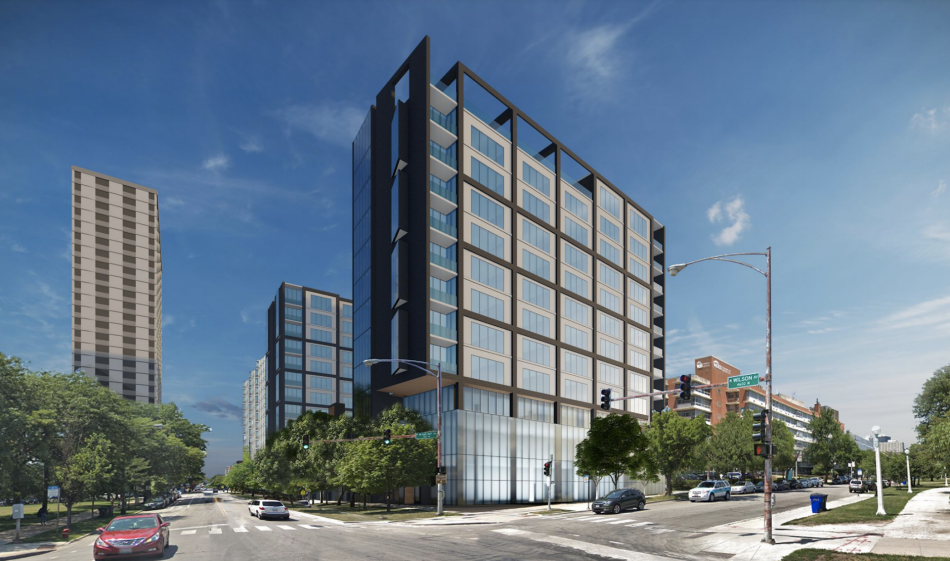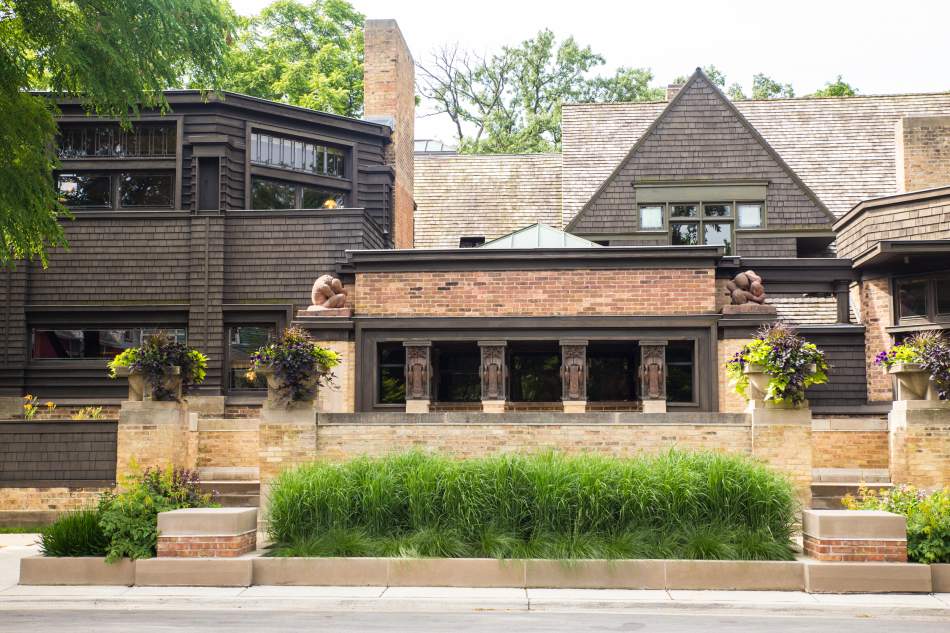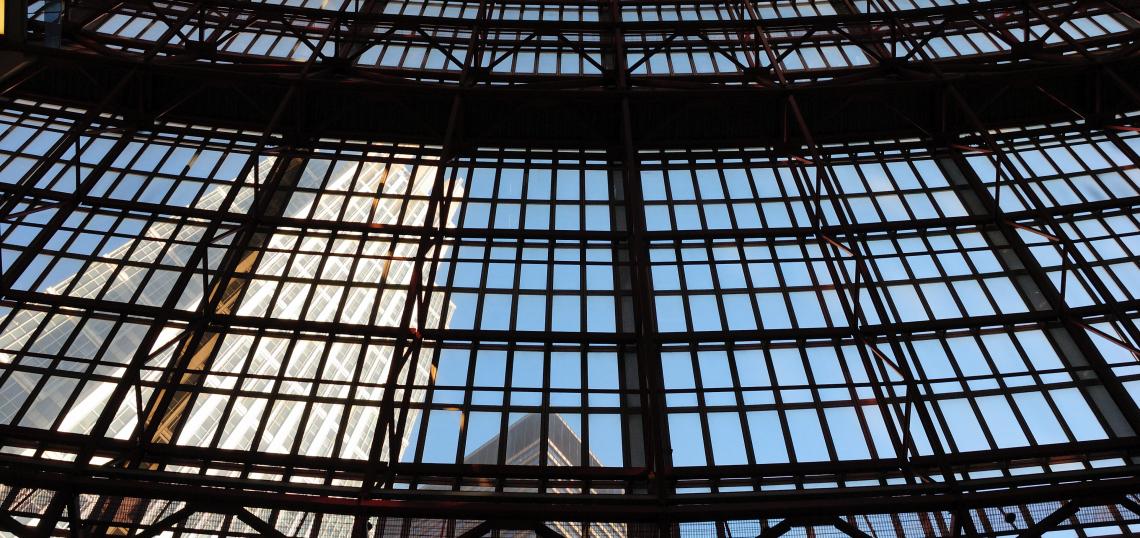After Helmut Jahn's death, architecture critic Lee Bey says 'Save the Thompson Center: "Wrecking the Thompson Center robs Chicago of a one-of-a-kind building, taking with it that soaring, spectacular, glass-topped atrium. A showstopper of glass, color, and motion, the atrium is one of our city's most special public spaces; so much so that it pushes back against more than 40 years of poor stewardship by the state—the cheaping out on construction details and maintenance." (Chicago Sun-Times)
But is there still time left to save the Thompson Center, asks Crain's Dennis Rodkin: "An alliance of architecture and preservationists who want the James R. Thompson Center to be reused rather than demolished are hurrying to make preservation financially feasible for the colorful Helmut Jahn design in the Loop—an effort that's gained more urgency since the architect's death. 'It's a race against time,' said Elizabeth Blasius, a founder of the group Preservation Futures and co-author of a nomination to get the building listed on the National Register of Historic Places." (Crain's Chicago Business)
City Hall explores ordinance to address the impact of pollution on lower-income communities of color: "The city's health department is exploring whether Chicago can follow Los Angeles, Minneapolis and other cities to address the impact of cumulative pollution on residents when industrial operations seek to open in already burdened low-income communities of color. The idea has been discussed between environmental groups and City Hall in the past but took on new urgency last week when Mayor Lori Lightfoot said she was halting the review of a metal-shredding operation on the Southeast Side and announced she was ordering her staff to propose a “cumulative impact” ordinance by the end of the year. (Chicago Sun-Times)
 General Iron's move from the North Branch to the South Side has ignited the debate on pollution in lower-income communities.Jay Koziarz/Urbanize Chicago
General Iron's move from the North Branch to the South Side has ignited the debate on pollution in lower-income communities.Jay Koziarz/Urbanize Chicago
Demolitions in Pilsen now carry $15,000 'anti-gentrification' fee to fund affordable housing: "The owners of a trio of vintage buildings on 18th Street in Pilsen are the first to take out demolition permits under the city's new anti-gentrification plan that tacks $15,000 onto the existing cost of taking out a permit. The Chicago City Council in late March approved the surcharge for demolitions in most of Pilsen and along the western reaches of the 606 Trail as a way to slow gentrification that displaces long-term residents." (Crain's Chicago Business)
Streets pedestrianized during COVID, including Fulton Market, see business boost: "Pedestrian-friendly street redesigns often face resistance from business owners, who fear that they'll lose revenue from inconvenienced drivers. New data analysis by Yelp adds some fresh insights into what really happens to local commerce when vehicle traffic is kept out." (Bloomberg CityLab)
Uptown neighbors want to stop 314-unit apartment development at Weiss Hospital parking lot: "Lincoln Property Company wants to redevelop the Weiss parking lot at the corner of Wilson Avenue and Marine Drive, where it wants to build a 314-unit structure. The 12-story building would include 136 parking spaces, a bike room, and a rooftop deck. As the project is being considered by Ald. James Cappleman and his development advisory committee, a group of neighbors rallied outside Weiss Hospital seeking to block the proposal." (Block Club Chicago)
 A rendering of controversial apartment development slated for the corner of Wilson Avenue and Marine Drive.Valerio Dewalt Train Associates/46th Ward
A rendering of controversial apartment development slated for the corner of Wilson Avenue and Marine Drive.Valerio Dewalt Train Associates/46th Ward
Remembering Art Gensler, founder of the world's largest architecture firm with offices in Chicago: "Art Gensler, founder of Gensler, the world's biggest architecture firm, has died at 85. An innovative designer and businessman, Gensler grew the small San Francisco-based design firm that he started in 1965 into a global powerhouse. Gensler's firm today has 50 offices, thousands of employees, and work underway in more than 100 countries." (FastCompany)
A Glenview home designed by Frank Lloyd Wright is headed to auction with a suggested opening bid of $1.2 million: "The house, secluded on a wooded lane called Portage Run, came on the market in September, priced at a little under $1.7 million. Built in 1950, the house is being sold by Brian Busche, whose now-deceased parents bought it from the first owners 56 years ago." (Crain's Chicago Business)
And speaking of Frank Lloyd Wright... Oak Park's 'Wright Plus' architectural housewalk returns on September 18: "Tour the interiors of eight private residences and two landmark buildings designed by Frank Lloyd Wright and his contemporaries. For one day only, homeowners invite guests into the private living spaces of their magnificently restored homes, reimagined for today's lifestyles." (Frank Lloyd Wright Trust)
 The Frank Lloyd Wright home and studio in Oak Park.Shutterstock
The Frank Lloyd Wright home and studio in Oak Park.Shutterstock






